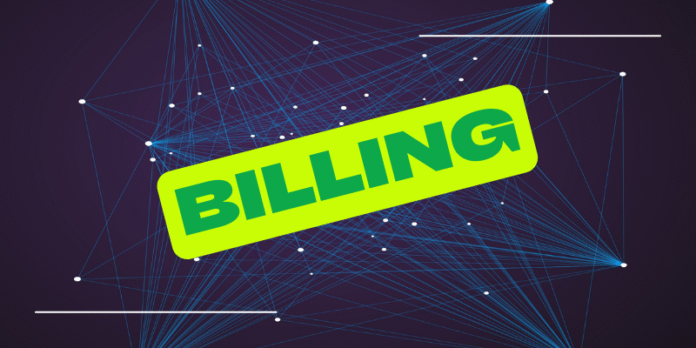In today’s fast-paced digital economy, billing systems play a vital role in the financial operations of businesses. From small startups to large enterprises, an efficient billing process ensures smooth cash flow, customer satisfaction, and compliance with financial regulations. This guide covers everything you need to know about billing, from traditional methods to modern automated solutions.
What Is Billing?
Billing refers to the process of generating invoices, tracking payments, and maintaining accurate financial records. It is a cornerstone of business operations, enabling companies to request payment for goods or services provided. A proper billing system is essential for transparency, accountability, and maintaining healthy financial relationships with clients.
Types of Billing Systems
1. Manual Billing
Manual billing is the traditional approach where invoices are created by hand or using basic tools like spreadsheets. While cost-effective for very small businesses, it is prone to errors, delays, and difficulties in tracking.
2. Automated Billing
Automated billing uses specialized software solutions to generate invoices, track payments, and send reminders automatically. This reduces human errors, saves time, and provides real-time updates on financial data.
3. Subscription Billing
With the rise of subscription-based services, subscription billing has become crucial. Businesses offering monthly, quarterly, or yearly services rely on automated recurring billing systems to charge customers at set intervals.
4. Cloud-Based Billing
Cloud-based billing solutions allow businesses to access their financial data anytime, anywhere. These systems often come with advanced features like data security, multi-currency support, and integration with CRM or ERP platforms.
Key Features of a Modern Billing System
A modern billing system goes beyond simple invoicing. The following features make it an indispensable tool:
-
Automation: Automatically generates and sends invoices.
-
Payment Tracking: Monitors payments in real time.
-
Multiple Payment Gateways: Supports credit cards, bank transfers, and digital wallets.
-
Customization: Tailors invoices with company branding.
-
Security: Protects sensitive financial data with encryption.
-
Analytics: Provides insights into revenue, unpaid invoices, and customer payment patterns.
The Importance of Billing in Business
Billing impacts almost every aspect of a business. Some of the major benefits include:
-
Cash Flow Management: Ensures money flows in regularly, keeping the business stable.
-
Customer Trust: Clear, accurate billing strengthens trust with clients.
-
Efficiency: Automated systems save time and resources.
-
Compliance: Maintains records for tax purposes and audits.
-
Scalability: Supports growth by handling large volumes of invoices effortlessly.
Challenges in Billing
Despite advancements, businesses often face challenges in billing, such as:
-
Late Payments: Clients delaying payments can disrupt cash flow.
-
Errors in Invoices: Manual mistakes lead to disputes.
-
Integration Issues: Some billing systems fail to integrate smoothly with existing platforms.
-
Regulatory Compliance: Different regions may have varying billing regulations.
Addressing these issues requires adopting advanced billing solutions and implementing strict internal processes.
Best Practices for Effective Billing
To optimize billing operations, businesses should follow these practices:
-
Use Automated Billing Software – Reduces errors and speeds up processes.
-
Offer Multiple Payment Options – Makes it convenient for clients to pay.
-
Send Timely Reminders – Encourages customers to pay on time.
-
Maintain Transparent Records – Provides clarity during disputes.
-
Regularly Review Billing Policies – Keeps systems updated with regulations.
-
Track Customer Payment Behavior – Helps identify reliable clients and those who need stricter terms.
Top Billing Software Solutions
Several billing platforms dominate the market today. Here are a few widely used ones:
-
FreshBooks – Ideal for freelancers and small businesses.
-
Zoho Books – Offers robust automation features.
-
QuickBooks – A popular choice for accounting and billing combined.
-
Chargebee – Specializes in subscription billing.
-
Stripe Billing – Known for global payment support.
Each platform has unique features, so choosing the right one depends on business size, industry, and customer base.
Future Trends in Billing
The world of billing is evolving rapidly. Some key trends include:
-
Artificial Intelligence (AI): AI-driven billing helps predict payment delays and improves invoice accuracy.
-
Blockchain Technology: Provides secure, transparent billing processes.
-
Mobile Billing: More businesses are adopting mobile-first billing solutions.
-
Personalized Invoices: Customization enhances customer experience.
-
Global Payment Solutions: Supports cross-border transactions with ease.
Businesses adopting these trends will stay ahead of competitors while offering seamless experiences to customers.
Why Businesses Should Invest in Billing Systems
An investment in billing systems is not just about saving time. It directly influences profitability, client relationships, and long-term growth. Companies that implement advanced billing solutions experience:
-
Faster payment cycles
-
Reduced disputes
-
Better financial forecasting
-
Improved customer retention
-
Stronger compliance with financial regulations
Conclusion
Billing is far more than just sending an invoice. It is the foundation of financial stability and customer trust in any business. With the right billing system, companies can streamline operations, improve efficiency, and scale without disruptions. Embracing modern billing technologies ensures that businesses remain competitive in an increasingly digital world.


